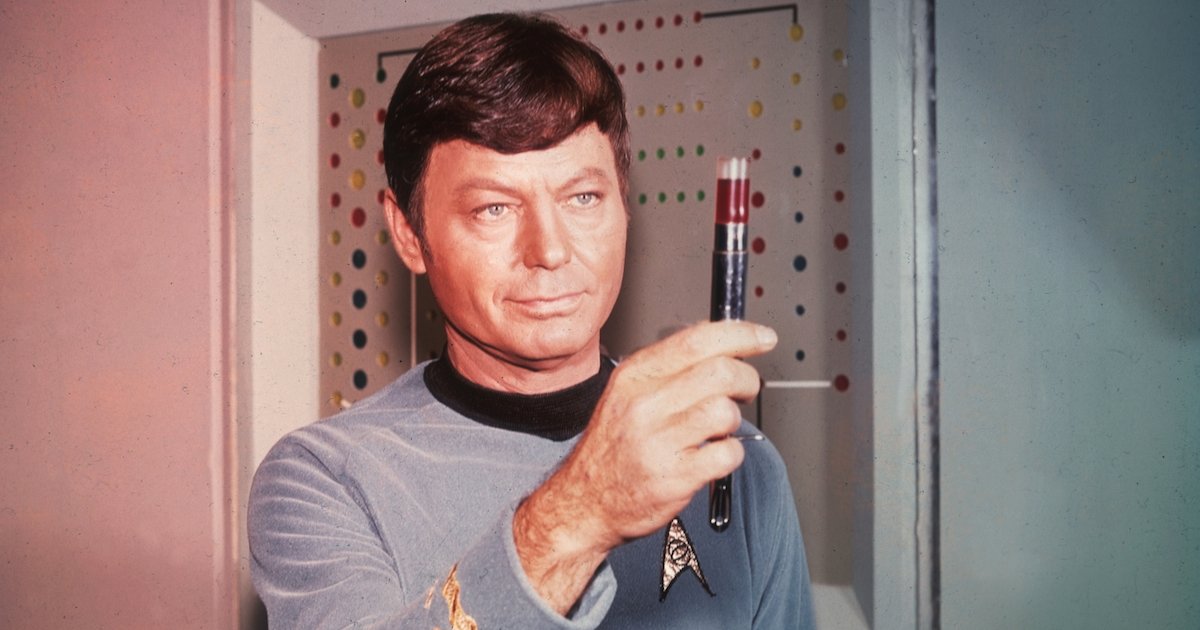Remembering DeForest Kelly
- DeForest Kelly, the original Dr. Leonard McCoy of Star Trek, passed away 22 years ago due to a terminal stomach cancer diagnosis.
- If diagnosed at an early stage, stomach cancer is quite treatable (with a five-year survival rate of around 68%), usually with surgery and chemotherapy. When diagnosed in later stages, however, it becomes much harder to treat and is usually considered incurable.
- Recognizing symptoms of stomach cancer can be extremely tricky. The most common symptom is mild pain that could be easily mistaken for indigestion. Possible other symptoms include loss of appetite, heartburn, indigestion, nausea and vomiting, unexplained weight loss, fatigue, and bloating.
Related: 5 Life Lessons We Learned From Mister Rogers, Who Died 18 Years Ago From Stomach Cancer
Read More While portraying Dr. McCoy, Kelley was quietly diagnosed with stomach cancer in the mid-1990’s. According to his close friend Kristine M. Smith, Kelley didn’t disclose much information about his disease or treatment plan since Smith’s mother was battling brain cancer. It wasn’t until 1999 when Kelley informed Smith that his cancer had been declared terminal after visiting intensive care. According to Smith, Kelley chose not to disclose his diagnosis publicly and only share the news with close friends and family. Smith and Kelly’s wife, Carolyn Kelley, served as his main sources of support during final days. Kelley passed away due to stomach cancer on June 11, 1999.
While portraying Dr. McCoy, Kelley was quietly diagnosed with stomach cancer in the mid-1990’s. According to his close friend Kristine M. Smith, Kelley didn’t disclose much information about his disease or treatment plan since Smith’s mother was battling brain cancer. It wasn’t until 1999 when Kelley informed Smith that his cancer had been declared terminal after visiting intensive care. According to Smith, Kelley chose not to disclose his diagnosis publicly and only share the news with close friends and family. Smith and Kelly’s wife, Carolyn Kelley, served as his main sources of support during final days. Kelley passed away due to stomach cancer on June 11, 1999.Related: New Hope For Stomach Cancer: Immunotherapy Drug Opdivo Now Approved As a First Treatment
“He knew they would flood him with cards and letters, and he always answered personally when anyone wrote to him, but knew he wouldn't be able to respond to them all,” Smith told The Spectrum. “He was still receiving a lot of mail so I suggested sending out a form letter, but he said 'absolutely not' and continued to sign photos as long as he could. He never had an assistant because Carolyn always helped him.”
Cancer survivor Lillian Kreppel explains how to talk to loved ones about cancer
Understanding Stomach Cancer
In the beginning stages, stomach cancer (also known as gastric cancer) often does not cause many symptoms, making it difficult to identify early. The most common symptom is mild pain that could be easily mistaken for indigestion. Possible other symptoms include loss of appetite, heartburn, indigestion, nausea and vomiting, unexplained weight loss, fatigue and bloating. But plenty of other health problems can cause these same symptoms, so testing is needed to determine the cause.
Related: Floss Today to Slash Your Chances of Stomach and Esophageal Cancer Tomorrow
In most parts of the world, stomach cancers originate in the main part of the stomach, known as the stomach body. But in the U.S., it's more likely to affect the area where the esophagus meets the stomach. Diet and lifestyle variances around the world affect the prevalence and type of stomach cancer. Where the cancer occurs is one factor that contributes to treatment decisions. If diagnosed at an early stage, stomach cancer is quite treatable (with a five-year survival rate of around 68%), usually with surgery and chemotherapy. When diagnosed in later stages, however, it becomes much harder to treat and is usually considered incurable.
Learn more about SurvivorNet's rigorous medical review process.


